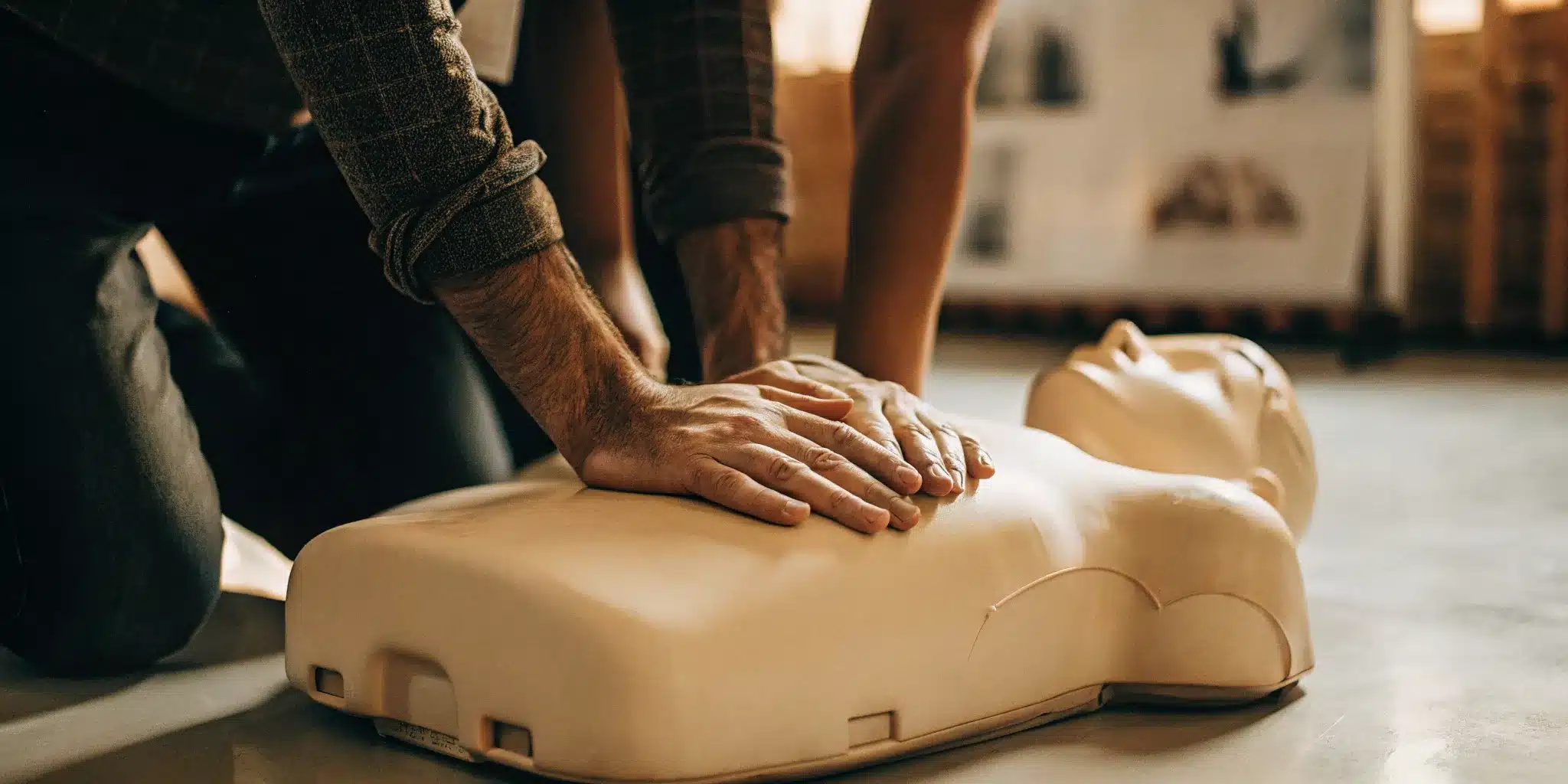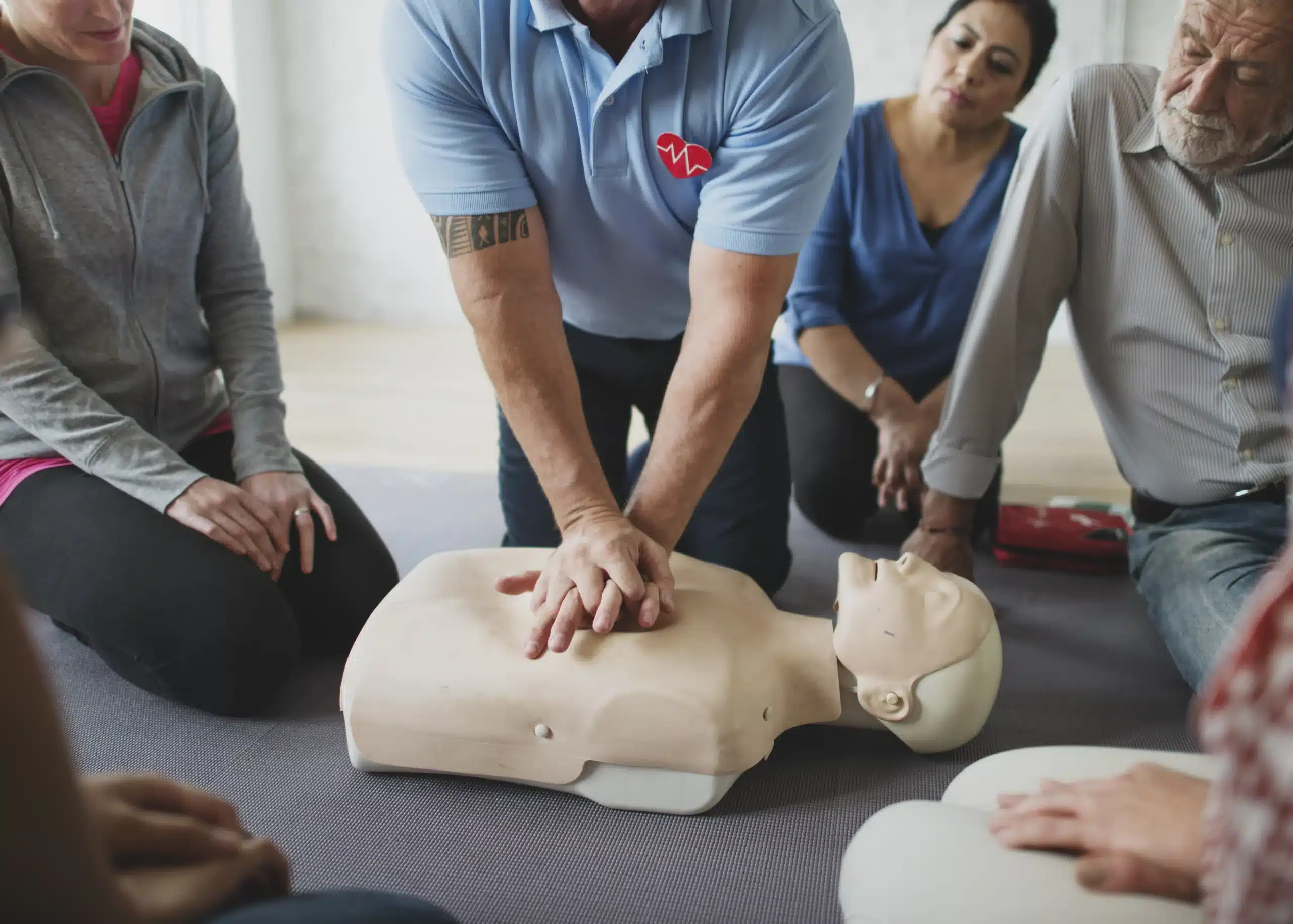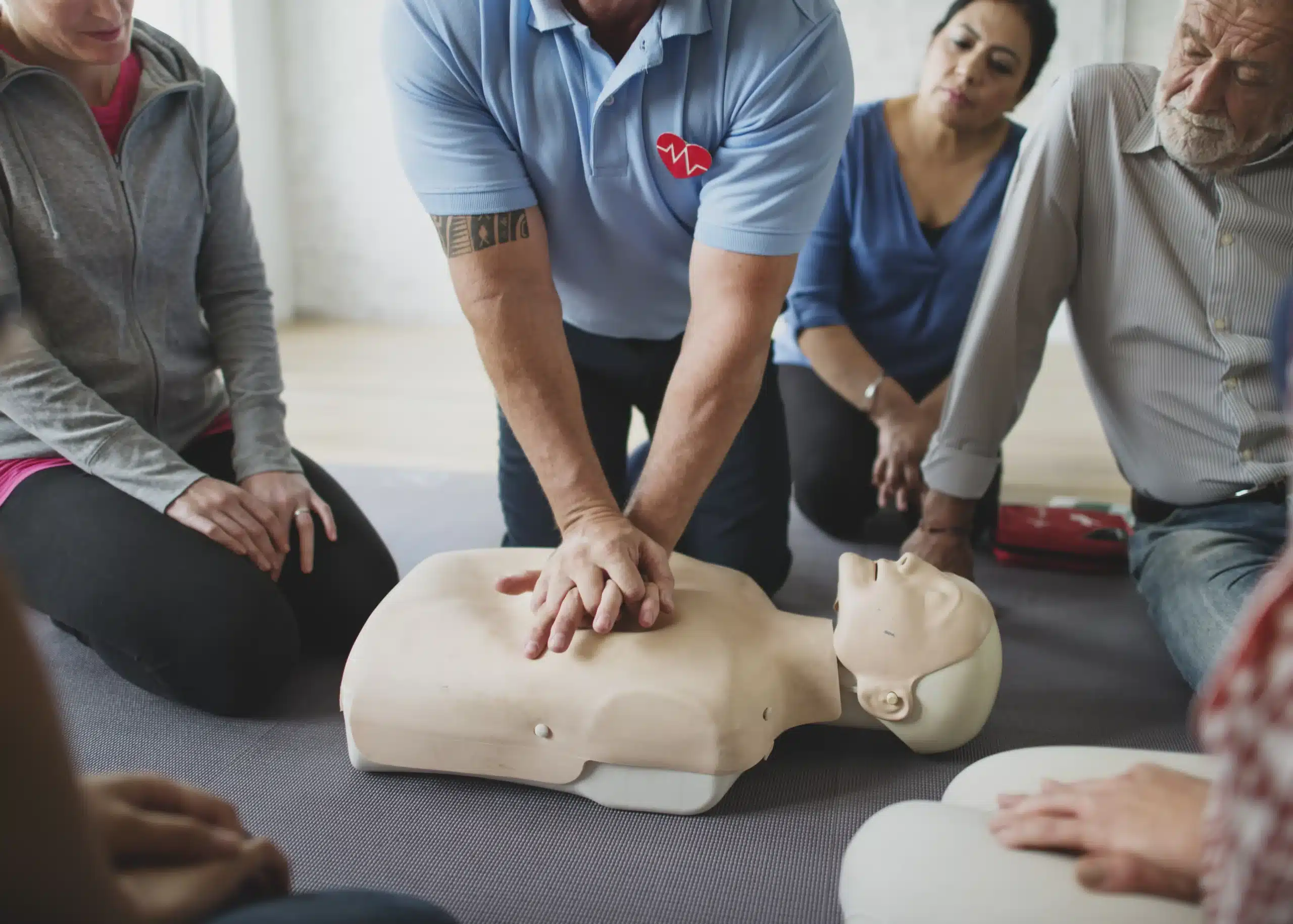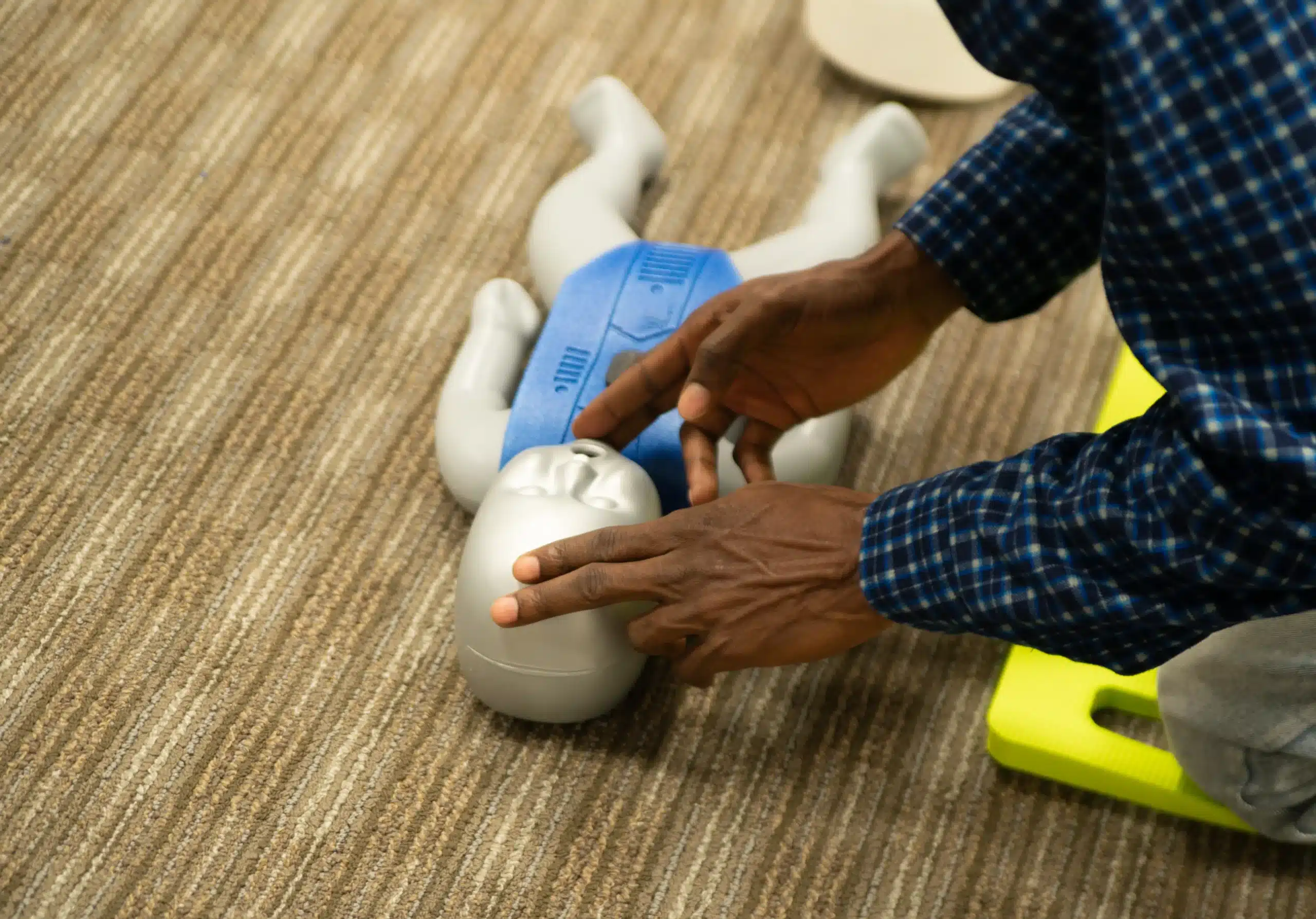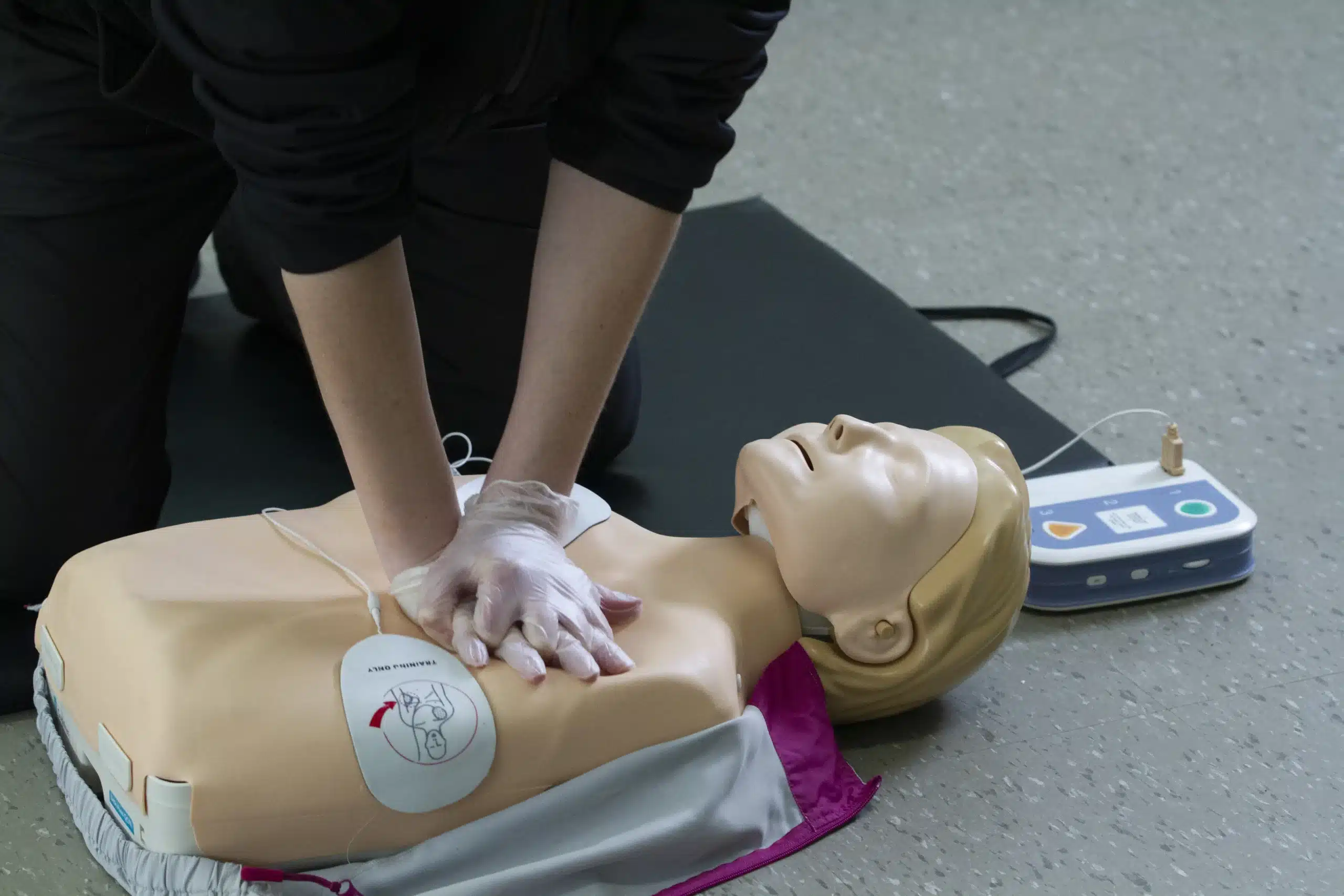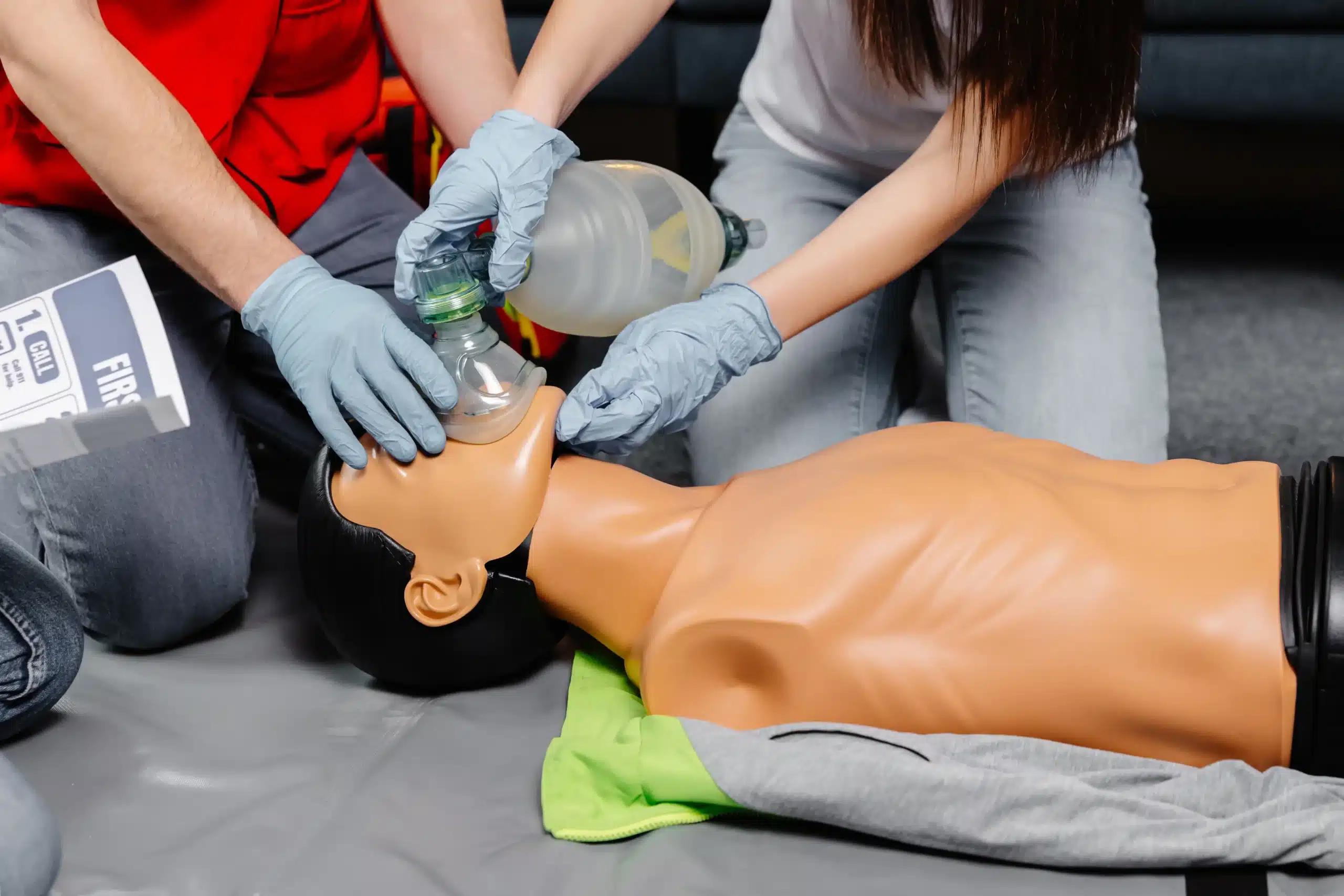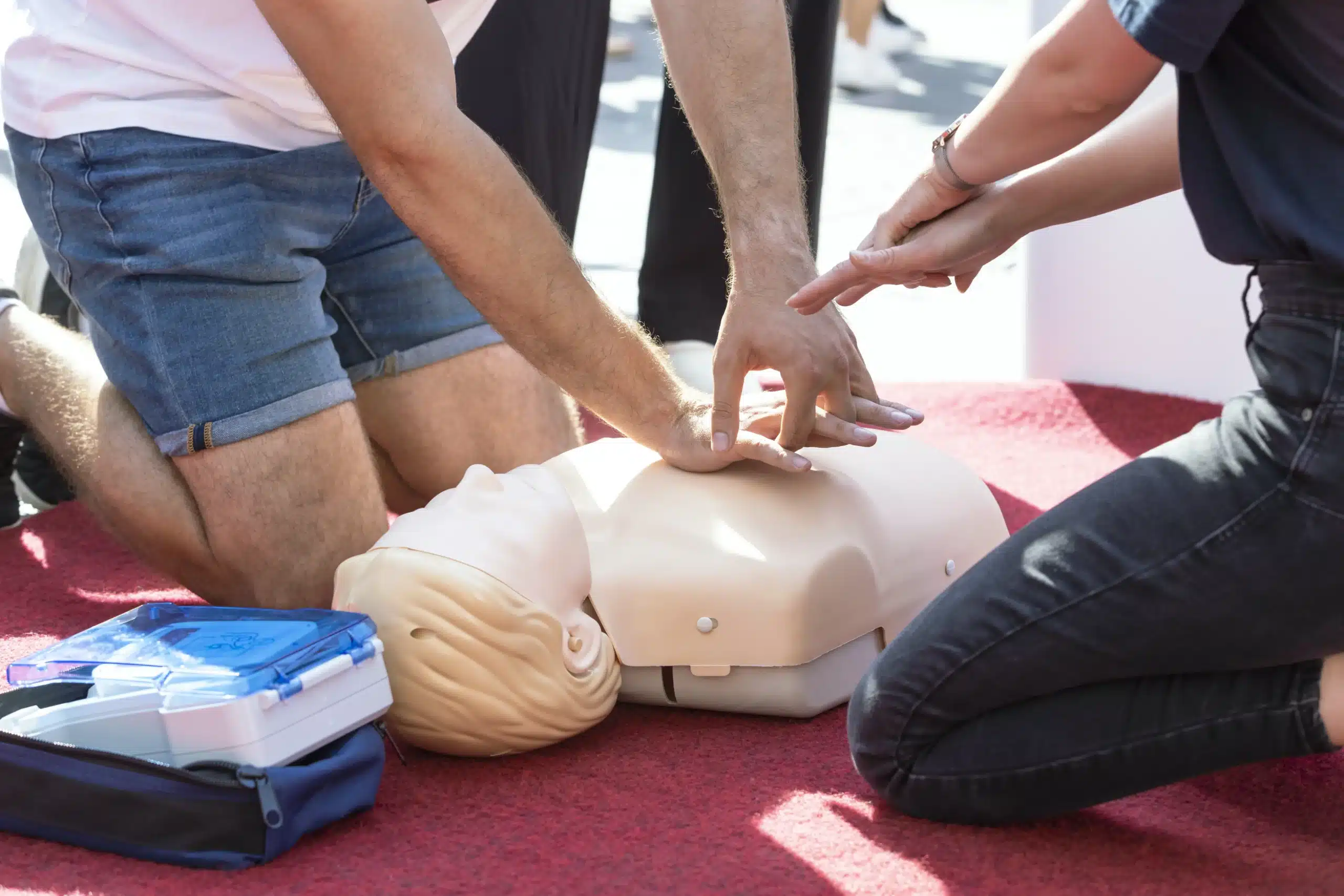Emergencies can happen anytime, anywhere. Would you know what to do? CPR certification Campbell equips you with the skills and confidence to respond effectively in critical situations. This guide explores the various CPR certification options available in Campbell, including BLS, ACLS, and PALS. We’ll discuss the steps involved in getting certified, from choosing the right course to completing the required training. We’ll also address common misconceptions about CPR and highlight the importance of staying updated with the latest guidelines. Whether you’re a healthcare professional, a concerned parent, or simply someone who wants to be prepared, this guide will provide valuable insights into CPR certification Campbell.
Key Takeaways
- CPR certification empowers you to act in emergencies: Learning CPR, whether for personal or professional reasons, equips you with the skills and confidence to respond effectively in critical situations.
- Find the right CPR course in Campbell: Explore a range of certification options, from basic CPR to advanced life support, and choose a course that aligns with your needs and schedule. Campbell CPR Classes offers flexible blended learning options.
- Stay prepared by maintaining your CPR skills: Regularly renew your certification and continue learning to ensure your skills remain sharp and up-to-date with the latest guidelines.
What is CPR Certification?
CPR certification formally recognizes that you’ve completed training in cardiopulmonary resuscitation (CPR) techniques. This training gives you the skills to respond effectively in emergencies like cardiac arrest, drowning, or choking. While a CPR certification isn’t required to perform CPR in an emergency, it ensures you’re well-prepared and understand the latest techniques and guidelines, giving you the confidence to act quickly and decisively when every second counts.
CPR certification courses typically include theory and hands-on practice. You’ll learn the correct techniques for chest compressions and rescue breaths, practicing on mannequins in a supportive environment. This combination of knowledge and practical experience makes you a more effective first responder. The American Heart Association emphasizes that CPR is a critical skill that can save lives. A good CPR course is crucial for understanding and learning how to perform this life-saving practice correctly. Current guidelines often prioritize compression-only CPR, so staying updated with the latest practices is essential. You can explore additional information on common CPR myths from sources like the Red Cross. Having current, accurate knowledge could make all the difference in a real-life emergency.
CPR Certification Courses in Campbell
Campbell offers a variety of CPR certification courses to meet different needs. Whether you’re a healthcare provider, a concerned citizen, or need certification for your job, there’s a course for you. Let’s explore some of the key certifications available.
BLS Certification
The Basic Life Support (BLS) certification course provides the foundational skills needed to respond to cardiac emergencies. This course covers essential techniques like CPR, recognizing the signs of a heart attack, and using an AED. BLS certification is often a prerequisite for other advanced certifications and is valuable for anyone wanting to learn life-saving skills. The BLS course includes an online portion, called Resuscitation Quality Improvement (RQI), that you complete before attending a brief in-person skills session. This online component adapts to your existing knowledge, typically taking between one to two hours. After successfully completing both parts, you’ll receive your American Heart Association certification card immediately. This BLS certification is valid for two years.
ACLS Certification
Advanced Cardiovascular Life Support (ACLS) certification is designed for healthcare professionals who regularly manage cardiovascular emergencies. This course builds upon the basics of BLS and covers more advanced techniques, including airway management and pharmacology. The ACLS course also uses a voice-assisted manikin (VAM) for the in-person skills test, providing a realistic simulation of an emergency scenario. While there’s no instructor physically present during the test, support is available by phone if needed. Similar to BLS, ACLS includes an online component that typically takes three to four hours to complete. Learn more about our ACLS course and how it can enhance your professional skills.
PALS Certification
Pediatric Advanced Life Support (PALS) certification focuses on the specific needs of infants and children experiencing cardiac emergencies. This course is essential for healthcare providers working in pediatrics, emergency medicine, or intensive care units. PALS training covers topics like recognizing respiratory distress in children, managing pediatric cardiac arrest, and providing appropriate interventions. You’ll receive a complimentary keychain CPR mask when you attend the in-person PALS training. We also offer convenient group discounts for PALS and other courses, making it easier for workplaces to train their staff. Learn more about our PALS certification and how to schedule a session.
Get CPR Certified in Campbell
Getting your CPR certification is straightforward and convenient with our blended learning approach. We combine online learning with in-person skills assessment to offer a flexible and efficient path to certification.
Register and Select a Course
Start by visiting our website and browsing the available CPR courses. We offer a range of certifications, including BLS, ACLS, and PALS. While you don’t technically need a certification to perform CPR in an emergency, having proper training ensures you can provide effective assistance. Choose the course that best suits your needs and register online. Our classes are designed to accommodate various schedules and experience levels. We also offer discounted group rates for businesses and organizations.
Complete Online Learning (RQI)
Once registered, you’ll begin the online learning portion of the course, known as RQI. This self-paced component allows you to learn essential CPR principles and techniques on your own time. The RQI program adapts to your existing knowledge, so the time required to complete it varies. Expect to spend between one to two hours for BLS and three to four hours for ACLS or PALS. You can start and stop the online modules as needed, fitting the training around your schedule. For additional information about course preparation, visit our course preparation page.
Attend In-Person Skills Assessment
After completing the online modules, you’ll schedule an in-person skills assessment at our Campbell location. This hands-on session allows you to demonstrate your CPR skills using a voice-assisted manikin (VAM). While an instructor won’t be physically present during the assessment, support is available by phone if you have any questions. This approach provides a comfortable and focused environment for you to showcase your learned skills.
Receive Certification
Upon successful completion of the skills assessment, you’ll immediately receive your American Heart Association certification card in digital format. This certification is valid for two years. Our streamlined process ensures you have your credentials promptly, allowing you to put your life-saving skills to use. For details about our pricing and to answer any remaining questions, review our low price guarantee and contact us.
Prerequisites for CPR Certification
Thinking about getting your CPR certification? Great! It’s a valuable skill. This section covers what you need to know before signing up for a class. The requirements are generally straightforward.
Age and Physical Abilities
While there isn’t a strict age limit for learning CPR, participants should have a reasonable level of physical fitness. CPR involves chest compressions and other physical maneuvers, so you should be comfortable performing these actions. If you have any pre-existing physical limitations, it’s wise to consider your fitness level and perhaps discuss any concerns with the course instructors before attending. CPR is physically demanding, and being prepared will help you succeed.
Educational Background
You don’t need prior medical knowledge or certifications to take a CPR class. The courses are designed for people of all backgrounds, from healthcare professionals to concerned citizens. While you can technically perform CPR without formal training, a course ensures you learn the proper techniques and gain the confidence to act effectively in an emergency. Certification also demonstrates your commitment to safety and can be valuable in certain workplaces.
Time Commitment
One of the biggest questions people have is how much time they need to dedicate to getting certified. CPR courses typically involve two parts: online learning and an in-person skills assessment. The online portion is self-paced and adaptive, meaning the length varies depending on your prior knowledge. Expect to spend one to two hours for Basic Life Support (BLS) and three to four hours for Advanced Cardiovascular Life Support (ACLS) or Pediatric Advanced Life Support (PALS). The benefit of online learning is that you can start and stop at any point, fitting it into your schedule. The in-person skills session typically takes a few hours, allowing you to practice and demonstrate your proficiency to an instructor. Find more information about course preparation on the Campbell CPR Classes website. Also, consider the cost of the class, which can range from $50 to $200 or more depending on the level and location. Discounted group classes are also available.
CPR Course Structure and Duration
CPR certification blends online learning with hands-on practice. This approach makes training accessible and ensures you develop the confidence to act in a real emergency. Here’s what you can expect:
Learn Online
Our CPR courses begin with an online component called RQI. This self-directed portion lets you learn essential concepts and procedures at your own pace. The RQI program is adaptive, meaning the time you spend online will depend on your existing knowledge. Expect to spend between one and two hours for BLS, and three to four hours for ACLS or PALS certification. You can start and stop the online training as needed, fitting it conveniently into your schedule. Learn more on our course preparation page.
Attend In-Person Training
After completing the online portion, you’ll attend an in-person skills session. You’ll receive a free keychain CPR mask when you arrive. Since CPR can be physically demanding, we encourage students with any physical limitations to consider their fitness level before registering. We understand that unexpected things can happen, so we offer rescheduling options if you need to adjust your training date. We also offer discounted group CPR classes.
Practice and Assess Your Skills
The in-person session focuses on practical application. You’ll practice your skills and then complete a skills test using a voice-assisted manikin (VAM). While you’ll take the test independently, support is available by phone if needed. Once you’ve successfully completed the skills test, you’ll receive your digital American Heart Association certification card, valid for two years. You can learn more about our various certifications, including our BLS certification, on our website. Our low price guarantee ensures you’re getting the best value for your training.
Why is CPR Certification Important in Campbell?
CPR certification equips you with the skills to respond effectively during emergencies. It’s more than just a certificate—it’s a potential lifesaver. Whether at work, home, or out in the community, knowing CPR can make all the difference. Here in Campbell, CPR certification offers distinct advantages:
Increase Survival Rates
Cardiac arrest can happen anytime, anywhere. CPR can significantly improve survival rates by maintaining blood flow and oxygen to the brain and heart until professional help arrives. Learning CPR helps dispel common myths, like the idea that CPR alone can restart a heart. It emphasizes the crucial role of CPR in keeping someone alive until paramedics arrive. Effective CPR buys precious time, increasing the chances of a positive outcome.
Meet Workplace Requirements
Many workplaces, especially those in healthcare, childcare, or education, require CPR certification. Getting certified demonstrates your commitment to safety and prepares you to handle emergencies in professional settings. Even if your workplace doesn’t mandate it, CPR certification can be a valuable asset, showing your willingness to take initiative and protect those around you. Some organizations even offer group discounts for businesses, making it easier and more affordable to train your team. Contact us to learn about our discounted group rates.
Empower Your Community
CPR certification empowers you to be a valuable resource in your community. Knowing you can step in during a crisis provides peace of mind, not just for you, but for everyone around you. It fosters a sense of preparedness and strengthens community bonds. By becoming CPR certified, you contribute to a safer environment for everyone in Campbell, from neighbors and friends to colleagues and family. Learn more about how CPR training can empower individuals and create safer communities.
CPR Certification Costs
Getting CPR certified is an investment in yourself and your community. Let’s break down the costs associated with CPR certification so you can find a course that fits your budget.
Course Fees
CPR certification costs vary depending on the level of training you need. Basic CPR classes typically range from $50 to $150. More advanced certifications, such as ACLS or PALS, or courses that include comprehensive first aid training, might cost a bit more. These fees usually cover your training materials, instructor time, and the certification exam. Check with your chosen provider for a detailed price breakdown. At Campbell CPR Classes, we’re committed to offering the lowest prices in Santa Clara County, so contact us for the most up-to-date pricing.
Group Discounts
If you’re training a group, explore group discounts. Many CPR training centers, including Campbell CPR Classes, offer reduced rates for group bookings. The cost per person often decreases as the group size increases. For example, a basic two-hour CPR training session might cost $35–$45 per person, but a group of eight could see a lower total cost. Learn more about our group discounts and how we can tailor a training session to your needs.
Financial Assistance
While CPR training is a valuable investment, we understand that cost can be a barrier. Explore potential financial assistance options. Some organizations offer financial aid programs or partner with businesses to provide special group rates. It’s always worth checking with your local community centers, healthcare providers, or training centers like Campbell CPR Classes to see what assistance might be available. Contact us—we’re happy to discuss options.
CPR Certification Misconceptions
It’s easy to get confused about CPR certification requirements, especially with so much information (and misinformation) online. Let’s clear up a few common misconceptions:
Performing CPR Without Certification
You don’t need official CPR certification to perform CPR in an emergency. Acting quickly with even basic first aid can make all the difference. However, proper training is crucial for performing effective CPR and giving the best chance of survival. A certification course teaches you the correct techniques and builds your confidence in a stressful situation.
Online vs. In-Person Training
While some CPR training can be completed online, hands-on practice is essential. Online-only training doesn’t provide the same skill development as in-person training. In-person CPR courses offer personalized feedback from instructors, allowing you to refine your technique and ask questions. This direct interaction is invaluable for mastering the physical skills required for effective CPR. Campbell CPR Classes offers a blended learning approach, combining online learning with the essential hands-on skills assessment component. You can learn the fundamentals online and then demonstrate your skills in person.
CPR’s Role in Cardiac Emergencies
Another common misconception is that CPR restarts the heart. CPR is a life-saving technique, but its primary purpose is to maintain blood flow and oxygen to the brain and vital organs during cardiac arrest. It buys precious time until advanced medical help arrives. Defibrillation or other medical interventions are typically needed to restore a normal heart rhythm. CPR keeps the body alive, acting as a bridge to advanced medical care. Understanding this distinction highlights the importance of learning CPR.
Maintain Your CPR Certification
Keeping your CPR skills sharp is essential for responding effectively in emergencies. This section covers how to stay current with your certification and the latest CPR practices.
Renew Your Certification
CPR certifications, like those from the American Heart Association, are typically valid for two years. To maintain your credentials and ensure your skills are up-to-date, you’ll need to renew your certification regularly. This involves retaking the course and demonstrating your proficiency in CPR techniques. Think of it like a driver’s license—you need to renew it to stay legal on the road, and with CPR, you’re renewing your ability to potentially save a life. Check with your certifying organization or contact us for details on renewal requirements and available courses.
Continue Your Education
Even after getting certified, continuing your CPR education is a smart move. Consider taking refresher courses or exploring advanced training options. This ongoing learning reinforces your skills and keeps you informed about any changes in CPR guidelines or best practices. The more you practice and learn, the more confident and prepared you’ll be in a real emergency. Look for opportunities to expand your knowledge through workshops, online resources, or advanced certifications like ACLS or PALS.
Stay Updated
The medical field is constantly evolving, and CPR techniques are no exception. Staying updated on the latest guidelines and recommendations is crucial for providing effective care. Regularly review resources from reputable organizations like the American Heart Association or check in with your CPR training provider for updates. Staying informed ensures you’re using the most current and effective methods when performing CPR. You can also subscribe to newsletters or follow relevant organizations on social media to stay in the loop. Staying current isn’t just about maintaining your certification—it’s about maximizing your ability to make a difference.
Choose a CPR Provider in Campbell
Finding the right CPR provider is crucial for a valuable learning experience. Here’s what to consider when making your decision:
Accreditation and Standards
Ensure your chosen provider offers accredited courses that meet established standards. Look for certifications like CPR, BLS, ACLS, PALS, and First Aid, ideally through a recognized organization like the American Heart Association. AHA certification ensures your training aligns with current guidelines and is widely accepted. This is especially important for professional certifications.
Instructor Qualifications
Qualified instructors are essential for effective CPR training. Seek out hands-on classes led by experienced professionals. Practice on mannequins to master techniques like chest compressions and rescue breaths. Instructors should guide you, answer questions, and provide personalized feedback.
Accessibility and Flexibility
Convenient scheduling and affordable pricing make training more accessible. Many providers offer group discounts or guarantee the lowest prices. Flexible scheduling, including weekend or evening classes, helps fit CPR training into your busy life. Some organizations, like the YMCA, may offer financial assistance, though availability varies. Contact us to discuss options and find the best fit.
Related Articles
- Why CPR is Important in Healthcare – Campbell CPR Classes
- The Lifesaving Power of Workplace CPR and First-Aid Training
- CPR Myths Debunked for Better First Aid
- BLS CPR Classes in Campbell, CA – Campbell CPR Classes
- Group CPR Discount Classes in Campbell, CA – Campbell CPR Classes
Frequently Asked Questions
What’s the difference between BLS, ACLS, and PALS certification?
BLS (Basic Life Support) certification covers fundamental CPR skills and is suitable for anyone, including healthcare providers and the general public. ACLS (Advanced Cardiovascular Life Support) is designed for healthcare professionals who manage cardiovascular emergencies and includes more advanced techniques. PALS (Pediatric Advanced Life Support) focuses on the specific needs of infants and children in cardiac emergencies.
How long does it take to get CPR certified?
Our blended learning approach combines online learning with in-person skills assessment. The online portion is self-paced and adapts to your existing knowledge, taking one to two hours for BLS and three to four hours for ACLS or PALS. The in-person skills session typically takes a few hours.
Do I need to be a healthcare professional to get CPR certified?
Not at all! CPR certification is beneficial for everyone, regardless of their profession. Whether you’re a teacher, parent, office worker, or healthcare provider, knowing CPR can empower you to save a life. We offer a range of courses to suit different needs and experience levels.
How much does CPR certification cost?
The cost varies depending on the course level and any applicable group discounts. We offer competitive pricing and a low-price guarantee for our courses in Santa Clara County. Contact us directly for the most up-to-date pricing information.
How often do I need to renew my CPR certification?
CPR certifications are typically valid for two years. You’ll need to renew your certification to stay current with the latest guidelines and maintain your skills. We offer renewal courses to make this process easy and convenient.
This article was written for free by MEGA SEO.


